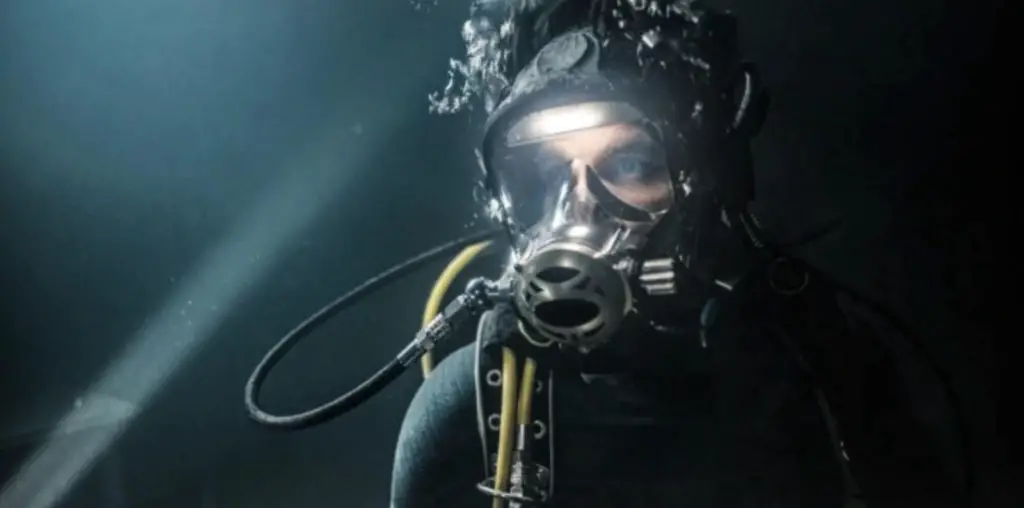
Diary of a Vampire Priest
One thing I like about Chan-wook Park movies is the cleverness of the little details, the grace notes. For example, in his latest, “Thirst,” there’s a moment where a vampire has drained most of the blood from a victim and, as she sucks hard to get the dregs out, the dead man’s throat begins to make the familiar sound of a straw sucking at the last drops of soda in a cup. Nice touch.
Park – who also directed “Sympathy for Mr. Vengeance,” “Oldboy,” and “Lady Vengeance” – is a master filmmaker at every level, and “Thirst” is a terrific film. Loosely based on Emile Zola’s novel Therese Raquin (which by complete coincidence I read last year and which, I am almost sure, contains no vampires), “Thirst” tells the story of Sang-hyun, a priest who becomes a vampire via a blood transfusion. Played by Song Kang-ho from “The Host,” Sang-hyun does his best to satisfy his blood cravings without murdering people.
But then he begins an affair with Tae-ju (Kim Ok-vin), the wife of a boyhood friend, and when he reveals his nature to her, their relationship gets a lot more interesting. More people become vampires. And a lot more people become vampires’ dinner. This is a movie where the words “I’ll get a doctor” imply the words “…so you can kill him and gorge yourself on his blood.”
You don’t know where “Thirst” is heading. A number of tonally different films seem to be going on simultaneously within its narrative. (This was apparently a complaint for some audiences at Cannes – where “Thirst” nevertheless won the Jury Prize – but I loved it.) What begins as an inscrutable sci-fi drama fades into a torrid romance with graphic, long-take sex scenes. At the same time, it’s a horror movie, then a Hitchcockian suspense thriller complete with a watching-the-water-to-see-if-the-body-pops-up scene, then finally a ghoulish domestic comedy, with the vampires hiding out in a sterile, stark-white apartment where blood spatters operatically on the floors and walls, one of the film’s most memorable images.
Actually, Park has an instinct not just for striking images but for elegant visual storytelling, juxtaposing the absurd, the brutal, and the tender, as his previous films also demonstrate. For example, in “Thirst,” he shows us Sang-hyun’s growing affection for Tae-ju by shooting just their feet as the priest steps out of his shoes, lifts the barefoot girl off the ground, and lowers her into the empty shoes. It’s a lovely image that’s echoed by the film’s darkly poignant – and funny – final shot.
In a film built from countless spectacular parts, the most memorable may be Kim Ok-vin’s performance as Tae-ju. The character undergoes radical transformations, becoming almost unrecognizable, and Kim sells it completely. She can be lustful, childish, mousy, ferocious, heartbroken, sweet, diabolical, and anything else on the dial. It’s a performance comparable in charisma and intensity to the one Choi Min-sik gave in “Oldboy,” which is certainly saying something. The sight of this sweet-looking elfin girl mocking a victim’s screams like Buffalo Bill from “Silence of the Lambs” is not something you’ll soon forget.
And then there are those sex scenes. Mainstream American films have what I call “sex shorthand,” where two people kiss and then we get fifteen seconds to a minute of wordless softcore writhing, perhaps accompanied by a mild moan or panting, and then a quick cut to the afterglow or the next day. The sex scenes in “Thirst” are long, specific, and full of character nuance. That is, they’re actual scenes, with character dictating dialogue and dialogue advancing plot. We know these people a lot better after watching them f**k.
It’s the relationship between Sang-hyun and Tae-ju that makes the film as engrossing as it is. The evolution of their affair is so unpredictable, so charged with queasy humor and dread – they feel like shy little kids at times and like rabid animals at others. I could have watched them gnaw away on each other for hours more.
